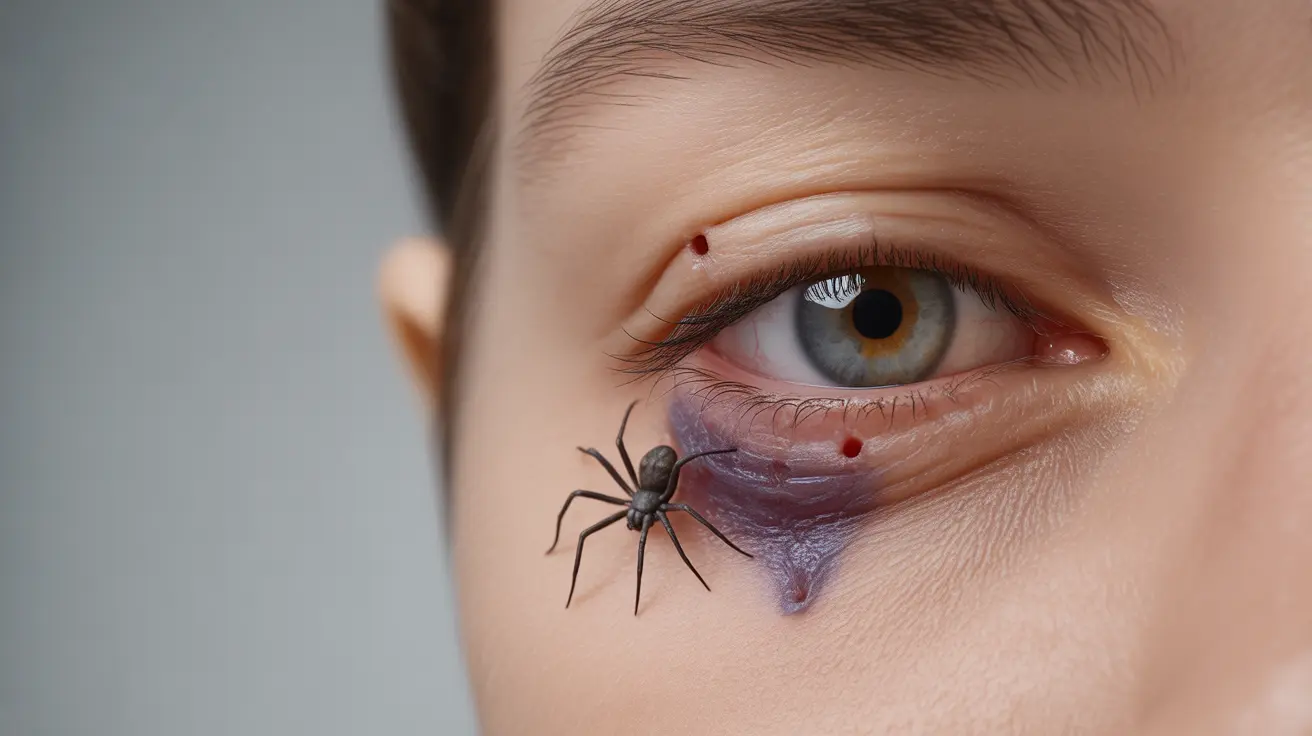A spider bite on the eyelid can be both alarming and uncomfortable, potentially causing various symptoms ranging from mild irritation to more serious complications. Understanding how to identify, treat, and manage these bites is crucial for protecting your eye health and preventing potential complications.
While most spider bites are harmless and heal on their own, some can be dangerous, especially when they occur near sensitive areas like the eyes. This comprehensive guide will help you understand what to look for and how to respond appropriately to a spider bite on your eyelid.
Identifying Spider Bite Symptoms on the Eyelid
When a spider bites your eyelid, you may experience several distinctive symptoms:
- Immediate sharp pain or stinging sensation
- Redness and swelling of the eyelid
- Local inflammation and tenderness
- Small puncture marks or fang marks
- Itching or burning sensation
- Possible bruising around the bite area
Common vs. Dangerous Spider Bites
Most spider bites are relatively harmless, but certain species can cause more severe reactions:
- Harmless spider bites typically cause:
- Mild swelling
- Local redness
- Minor discomfort
- Resolution within a few days
- Venomous spider bites may result in:
- Severe pain
- Spreading redness
- Blistering
- Muscle cramping
- Systemic symptoms
Treatment Options and First Aid
If you suspect a spider bite on your eyelid, take these immediate steps:
Immediate Home Care
- Clean the area gently with mild soap and water
- Apply a cold compress to reduce swelling
- Keep the area clean and avoid touching or scratching
- Take over-the-counter pain relievers if needed
Medical Treatment
Professional medical care may be necessary, especially if you experience:
- Severe pain or spreading redness
- Vision changes or eye discharge
- Difficulty opening the eye
- Signs of infection
- Systemic symptoms like fever or nausea
Prevention Strategies
To minimize the risk of spider bites on your eyelid:
- Regularly clean and declutter your living space
- Seal entry points around windows and doors
- Use protective eyewear when working in spider-prone areas
- Shake out stored clothing and bedding before use
- Consider using natural spider deterrents around your home
When to Seek Emergency Care
Immediate medical attention is necessary if you experience:
- Severe pain or rapid swelling
- Vision changes or eye movement problems
- Spreading redness or warmth
- Signs of infection
- Difficulty breathing or other systemic reactions
Frequently Asked Questions
What are the typical symptoms of a spider bite on the eyelid, and how can I tell if it's serious? A spider bite on the eyelid typically causes immediate pain, redness, and swelling. It's serious if you experience severe pain, spreading redness, vision changes, or systemic symptoms like fever or nausea.
How do I treat a spider bite on my eyelid at home, and when should I see a doctor? Clean the area with mild soap and water, apply a cold compress, and take over-the-counter pain relievers. See a doctor if you experience severe pain, vision changes, spreading redness, or signs of infection.
Can a spider bite on the eyelid affect my vision, and what warning signs should I watch for? Yes, a spider bite can potentially affect vision if swelling is severe or if venom affects nearby tissues. Watch for blurred vision, eye discharge, difficulty moving the eye, or increased pain.
What is the difference between a harmless spider bite and a bite from a venomous spider like the brown recluse or black widow on the eyelid? Harmless spider bites typically cause mild symptoms that resolve within days. Venomous spider bites often cause more severe pain, spreading redness, blistering, and may lead to systemic symptoms.
What steps can I take to prevent spider bites on the eyelid, especially while sleeping or spending time outdoors? Keep your sleeping area clean, regularly wash bedding, use bed nets if necessary, and consider natural spider repellents. Outdoors, wear protective eyewear when in spider-prone areas and avoid disturbing spider habitats.




